Ealing beavers thrive in their year in the city
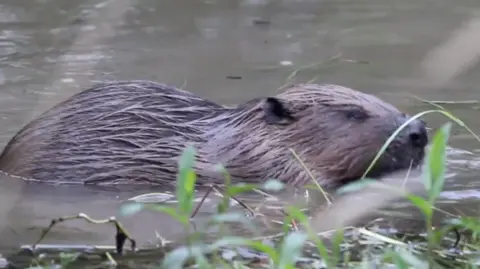 Ealing Beaver Project
Ealing Beaver ProjectA year ago, the UK's first urban beavers were introduced to their new home in Greenford in west London.
They live in Paradise Fields right next to a retail park.
Experts say the beavers are happy there and have had babies - or kits as they're known - and now the latest stage of their development is happening. One of the eldest females will be moved to help repopulate other areas of the UK.
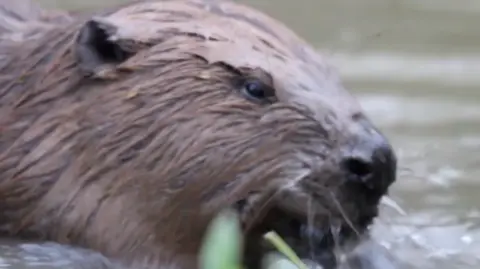 Ealing Beaver Project
Ealing Beaver ProjectDr Sean McCormack is one of the experts from Ealing Beaver Project: "We are in very exciting phase of the project," he told BBC London.
"We are taking the adolescent female - the eldest daughter - she will be three in spring and naturally she would want to go off and find a territory of her own. So we found her a bachelor beaver in Wales and she's going to start a new family down there.
"It is normal. This is a managed population of beavers behind a fence. It's an enclosure trial. So what we're doing is we're going to take her out when she would naturally disperse on her own anyway and try and find your own territory.
"We use these contraptions called Bavarian beaver traps and we put some apples inside. Apples are absolutely irresistible to beavers and we're hoping to catch her over the next week or so and then bring her to Wales to her new husband."
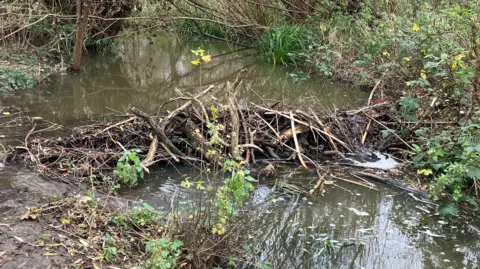
The changes that the beavers have made to Paradise Fields are very obvious. They have built eight dams and three lodges where they live. A lot of trees have been felled and gnawed. Experts say the beavers open up the canopy and enable other wildlife species to flourish.
Walking tours are very popular. And the beavers have been given names by local children.
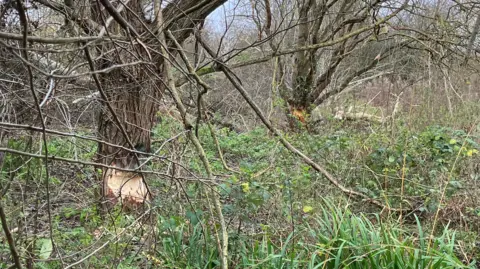
Roisin Campbell-Palmer, from the Beaver Trust, says the species are important in nature and wants the government to allow beavers to be released into the wild. Currently they can only be released under licence within enclosures.
"Beavers are really a good all-rounder," she says. "They really help with woodland restoration and regeneration, but they're probably more famous for the work they do in water courses.
"There are classic examples here now, the dams they have built. Not only does it slow the water but it's also cleaning the water as well, so they are really important for our environments."
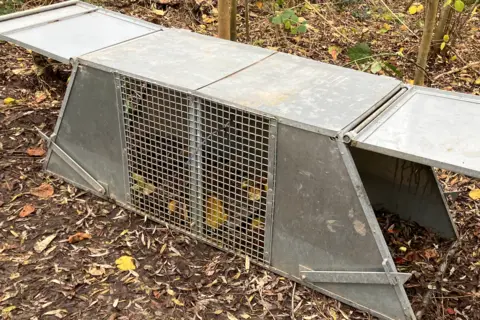
Dr McCormack says the beavers have also proved effective at holding back floodwater.
"One of the objectives of this project was to look at how beavers impact urban flooding downstream around Greenford Tube station," he says.
"About two months ago we had a tremendous amount of rain overnight over two nights. Streets upstream around Greenford and lots of other streets all flooded, but the target area that we said that we would impact didn't flood.
"So the community really saw the benefits of having beavers back here."
